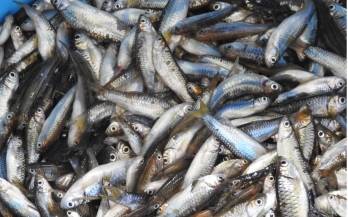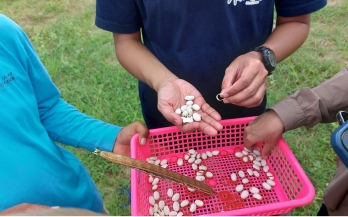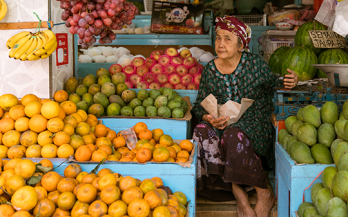Jakarta moves fast. So do its appetites. Over the past five years, Indonesia’s food landscape has shifted further towards convenience and high-risk options, moving away from diets that are nourishing and environmentally grounded. Indonesia Health Survey 2023 tells the story in numbers: high-fat foods consumption rose from 58.5% in 2018 to 60.7% in 2023; salty foods jumped from 40.3% to 52.2%; and instant noodles climbed from 45% to 51.7%. Meanwhile, adequate vegetable intake (five portions per day) fell from 4.6% to 3.3%.
Why Climate and Nutrition Integration Matters?
Climate change is not just an environmental issue; it intersects with systemic multiple aspects of human life. It interlinks the Sustainable Development Goals (SDGs) which aim to end hunger and poverty, preserve the environment, and ensure prosperity. In practice, climate change worsens hunger and hidden hunger as its increasing disasters, declining agricultural harvest and productivity, and threatening crop nutrition.
On October 14, 2025, the 5th series of Bincang Pangan Sehat Lestari brought together experts, policymakers, and practitioners from government agencies and NGOs. The discussions focused on the impact of climate change on food crop nutrition.
Back then, a lot of bilih were caught by fishermen, then cleaned by women, sometimes even children joined in to earn a bit of extra pocket money before being sold to buyers. But now, it is different’ Prof. Hafrjial Syandri, Bung Hatta University.
On 27 May 2025, the second episode of Bincang Pangan Sehat Lestari (Talk Series on Sustainable and healthy diets) brought together experts, policy makers, practitioners, and development partners to discuss the environmental perspectives on Indonesia’s school meal program (MBG). The seminar saw active participation, with attendees engaging in panel discussions. Over 30 Participants attended the seminar in person, and over 500 participants from sub national food agencies and NGOs attended it online.
Did you know that nearly 90% of soybeans (3 million tonnes) in Indonesia are still imported? Soybean is dominantly used to produce tempeh – a traditional food as one of the main plant protein sources with high nutritional value and has been consumed in Indonesia since the 16th century. The consumption of tempeh in Indonesia holds deep historical and cultural significance, yet ironically it currently relies on imported soybean from North and South America. GAIN Indonesia is currently working in 2 provinces on diversifying bean supply for tempeh production to increase resilience of tempeh production.
A recent high-level event co-hosted by the Center for Indonesian Policy Studies (CIPS) and the Global Alliance for Improved Nutrition (GAIN) brought together key stakeholders at Oakwood Suites Kuningan in Jakarta on December 10, 2024. This strategic discussion, which fostered collaboration among government, academia, and industry experts, aimed to contribute to addressing Indonesia's pressing food security and nutrition challenges.
GAIN Indonesia was at the forefront of Green Economy Expo held by The National Development Planning Agency (BAPPENAS) on July 3-5 in Jakarta. This year’s theme was “Advancing Technology, Innovation, and Circularity”. The event brought to the forefront discussions on sustainable development and the implementation of circular economy principles throughout Indonesia.
In a world where digital footprints deeply influence consumer behaviour, the integrity of online reviews is paramount. Recognising the challenges and opportunities presented by user-generated content (UGC), the Center for Indonesian Policy Studies (CIPS), supported by the Global Alliance for Improved Nutrition (GAIN), hosted a webinar in February 2024 focused on the implications of UGC for consumer protection in Indonesia. Complementing this discussion, a detailed policy paper, "Understanding the Landscape of Online Reviews in Indonesia from the Perspectives of Platforms and Consumers", has been launched to provide comprehensive analysis and actionable recommendations.
On Tuesday 28 January 2020, the atmosphere at the Indonesian Ministry of Health felt different than usual. It was a very special day, as it marked the 60th National Nutrition Day. There was a lively and dynamic ambience at the Ministry of Health as the place was filled with visitors and the fantastic live performance of the marching band from Jakarta’s Madrasah Ibtidaiyah Negeri 16 school filled the air with great energy.










